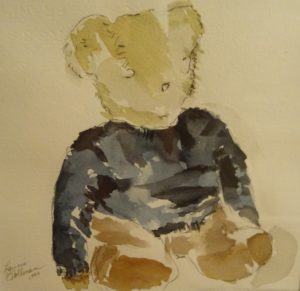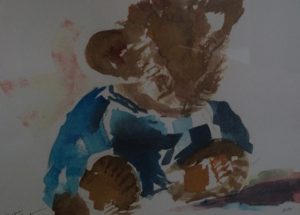The Value of Independent Play for Toddlers and Kids ages 4-6

During the Pandemic children are playing by themselves more often, especially if their parents are working. While they surely need our participation, they also benefit from learning to enjoy their own company.
Toddlers
Toddlers naturally play independently because they are thrilled to be so mobile. Once walking and climbing and even jumping are part of their lives they continuously wander (toddler means wanderer) to favorite stuffed animals and manipulative toys.
By even 16 months without language if you observe them closely you will watch them mimic others holding a baby doll or stuffed animal the way their parents hold them as well as walking with them, feeding them, and babbling to them.
Parents can join this early narrative play if they wish to encourage their toddlers, but it is often best just to observe and not interfere. Stepping back or non-interference is encouragement, too.
Then this very young child feels proud of themselves for playing on their own.

Kids 4-6
By age four your child is quite verbal and active enjoying manipulative toys and narrating their own stories with dolls and action figures. As a parent don’t be surprised to hear your own sentences being repeated to dolls in a doll house or watching mothering and fathering activities with their toy figures.
By five and six of course the children have become active in community centers and preschool, kindergarten, and first or even second grades. If you watch them playing alone they will entertain themselves while mastering social skills by having their figures and stuffed animals play with each other. They will also readily pick up books you have read to them and turn the pages on their own remembering much of the prose.
Each Child is Different as they Master Independence
While many kids this age enjoy playing on their own without interference, some like to know someone is nearby.
So to encourage independent play which fosters self-confidence, enjoyment of independence, and mastering social situations and other daily routines (toileting, talking to grown ups and other kids or siblings, feeding others, organizing small items, jumping and climbing) parents can stay in view doing their own thing and now and then comment very briefly stating simply but exactly what the child is doing.
In addition, if your child is reluctant to play alone, these simple specific statements reinforce their activity like,
“Wow. You made a block tower all by yourself!”
“Oh. It looks like you love putting your baby doll to sleep.”
“I see that you drew a car and Mommy is driving.”
“Let’s hang your picture on the refrigerator.”
Notice how specific these statements are rather than general praise (“good job”) that does not reference particularly what the child is accomplishing. Specific comments encourage them to desire to do it again or even elaborate the play for your continued appreciation, admiration, and approval.
